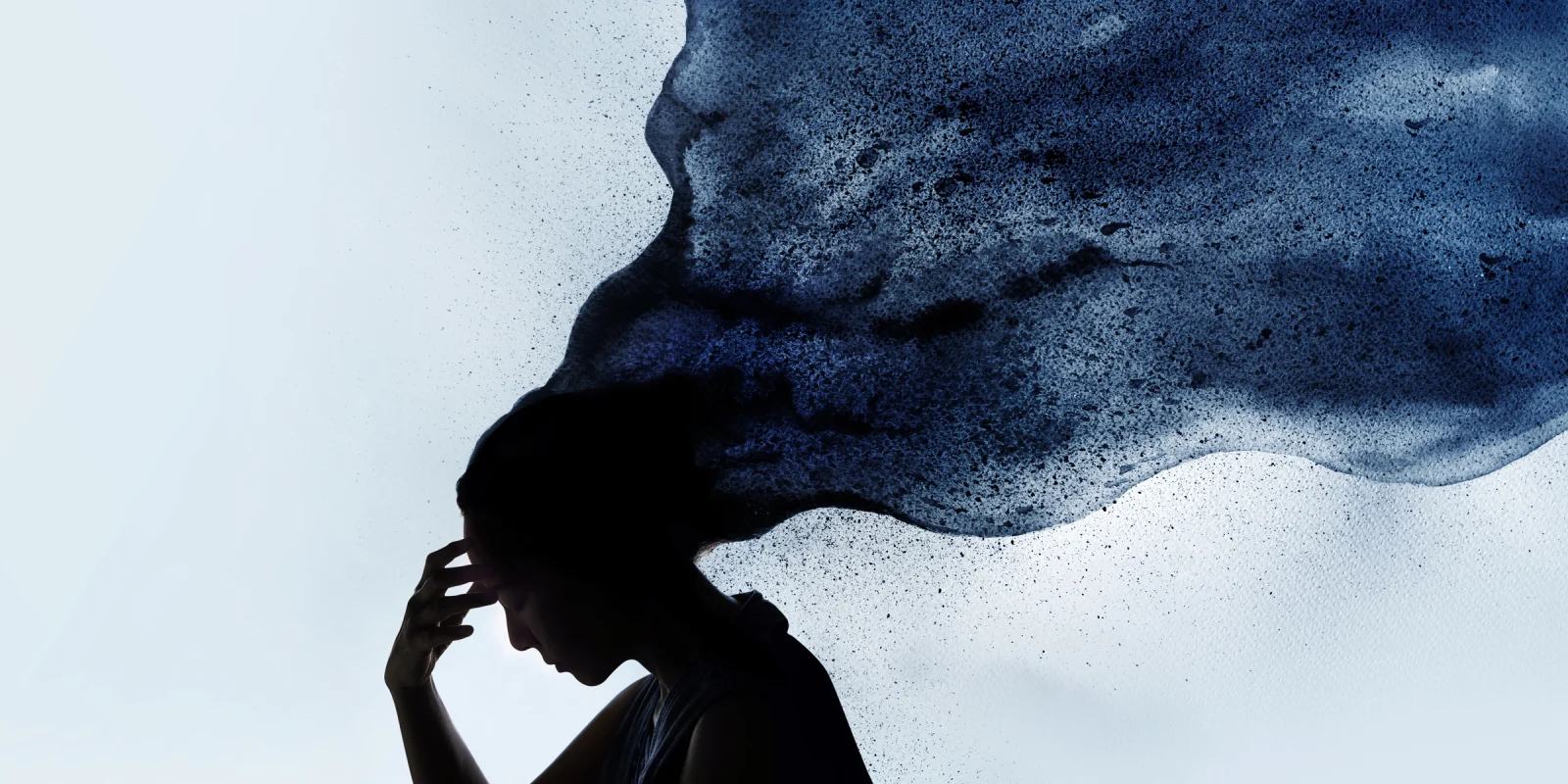"Depression is a white people problem. We just don't see it here."
A family member told me this while I was visiting them in the Democratic Republic of Congo (DRC). We were discussing health care similarities and differences in the U.S. and DRC. Why did my family member say this to me? Because, generally speaking, culturally, depression is not a problem that is recognized.
Black people have been raised to stay strong in the face of adversity. Depression is a sign of weakness. You don't get depressed. You get stronger. You figure it out.
When I visited the DRC, I saw a lot of poverty. Families without much to eat, not enough clothes to wear. I also had the opportunity to visit health care clinics where patients were being treated in conditions that would not be acceptable anywhere in the U.S. Despite these conditions, I also saw a lot of smiles. A lot of joy to still be alive despite the difficulties. This was why my relative believed what he said. Because his only exposure to depression was on TV, when white people were discussing it on TV shows or movies.
I remember the day I saw an African mama walk into the office for an appointment. She stood out. She was dressed in traditional African clothes. Walked like an African mama. Talked like an African mama. (I’m calling her mama because that's how I was raised. Any African woman older than me, especially if she looks like my mother’s age, is called mama. This is considered a sign of respect.) She had an appointment with one of my white colleagues. Sometime later, this colleague found me to discuss her case since there was a possibility she would become a mutual patient. I was informed that she was stressed and displaying signs of depression. The patient was advised to pursue CBT as part of her treatment plan, and a follow-up appointment was scheduled. My colleague was happy with the visit. I returned to my office, sat in my chair, and sighed, because I knew what the real outcome would be. She was not going to return. She was going to no-show her follow-up appointment. And I was right. She did not come back. As a matter of fact, it's been years since I have seen her in the office. But why?
A study in 2014 that interviewed 17 Black individuals showed that cultural barriers to depression treatment include “(a) black people don't get depressed, (b) I don't trust the doctors and/or the treatment, and (c) you don't need a doctor — it'll go away — just pray.” This was a small study group, but I’d heard variations of these cultural barriers my whole life. I don’t know what the African patient was thinking when she left the office, but it was most likely a variation of the cultural barriers listed.
Growing up within the Black community, white people were perceived as being more open to discussing their mental health. As a clinician, I’ve noticed that my white patients tend to accept conversations about mental health more easily than my non-white patients. Not all will accept it, but they tend to be more receptive and are open to treatment, including medications and psychology. My Black/brown patients can also accept conversations regarding mental health, but sometimes it can take more time. I always keep in mind that patience and respect are key to any positive patient interaction. I usually test the waters by mentioning stress and its effects on chronic pain. If I notice the patient is resistant to this conversation, I will move on to the next topic. I don’t know if that’s the right thing to do, but I don’t want to come off as pushy even though it is an important topic. Planting that mental health seed often helps move the conversation forward at the following visits.
Over the years, I have noticed the younger generation (whether white or not) being more open to having these conversations. I believe this is partly due to social media and the internet. Many celebrities speak freely about needing mental health breaks, self-care, and wellness. The stigma appears to have somewhat decreased.
These differences make me realize that taking the time to know our patients, their culture, their beliefs, and their lives makes us better clinicians. Time is a luxury in medicine. We just do not have enough of it. But what a difference it makes to our patients when we make the effort and sacrifice the time we do have to provide the best care possible.
What helps you best treat patients who have different cultural practices? Share in the comments.
Karine Ngoie is an interventional pain management physician assistant in Lawrence, Massachusetts. Remembering to be true to herself, respectful of others, and honest keeps her grounded personally and professionally. Karine is a 2022–2023 Op-Med Fellow. Connect with her on LinkedIn.
Image by Black Salmon / Shutterstock






